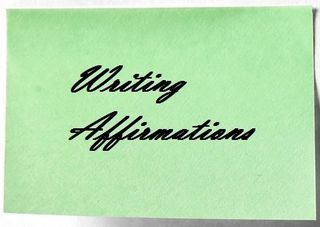Writing affirmation: An outline is the gas that my creativity needs to drive down the writing road.
Among the  most common pieces of advice given to aspiring authors is ���Outline your book!��� I give the same advice and even follow it myself. An outline always gives my manuscript focus. It forces me to think about what I want to say so that when I do begin writing the sessions are productive. So long as the outline is treated as a flexible document, it can save you time by eliminating a lot of rewriting.
most common pieces of advice given to aspiring authors is ���Outline your book!��� I give the same advice and even follow it myself. An outline always gives my manuscript focus. It forces me to think about what I want to say so that when I do begin writing the sessions are productive. So long as the outline is treated as a flexible document, it can save you time by eliminating a lot of rewriting.
Having said that, I also know that not all writers think like that or could even work that way. And that���s okay. We���re all different, and a variety of approaches can lead to the same result, which is a completed, successful book. So if you don���t like to write outlines, that���s fine.
But what happens if you hit a block and can���t think of what to write next? A few things then may be happening.
You may have run out of gas. Writing is a mentally exhausting activity, and when your brain is tired so probably will you be physically. You then need to rejuvenate yourself. Take a break. A walk in nature does wonders for many people. Listen to some loud music while you do some housecleaning. Allow your brain to relax and then get back to the writing.
Of course, running out of gas presumes you���ve spent at least a few hours writing. If you���re hitting a block after writing only a couple of paragraphs, then the issue might be that you don���t know enough about the craft of writing to keep going. You see, modern stories ��� regardless of genre and literary quality ��� essentially unfold the same way: the main character must solve a problem, but various conflicts prevent him from achieving his goal until the story���s climax. Once you understand the intricacies of plot structure and characterization, writing the story is easy. So, read up on your craft.
If you can academically cite what should come next but still stall after a couple of paragraphs, then you probably haven���t thought enough about your story. And that���s when you need to devise an outline, even if you don���t like doing so. After all, you probably already are creating an outline and draft in your head as you write. So consider combining the two approaches ��� start writing an outline but as soon as a scene or description comes to you switch gears and write it. When your creative gas tank hits empty, go back to outline, fill up on thoughts about the story, and then step on the accelerator by drafting a scene or two.
Professional Book Editor: Having your novel, short story or nonfiction manuscript proofread or edited before submitting it can prove invaluable. In an economic climate where you face heavy competition, your writing needs a second eye to give you the edge. I can provide that second eye.
<A HREF="http://ws-na.amazon-adsystem.com/widg... Widgets</A>
Related articles
 Writing Inspiration: 'The pleasure of each word I write is returned to me multiplied.'
Writing Inspiration: 'The pleasure of each word I write is returned to me multiplied.' Today's Writing Inspiration: Your first written sentence is the foundation of all of your dreams
Today's Writing Inspiration: Your first written sentence is the foundation of all of your dreams Writing inspiration: Model a story
Writing inspiration: Model a story Write winning query letter to editors, agents
Write winning query letter to editors, agents



